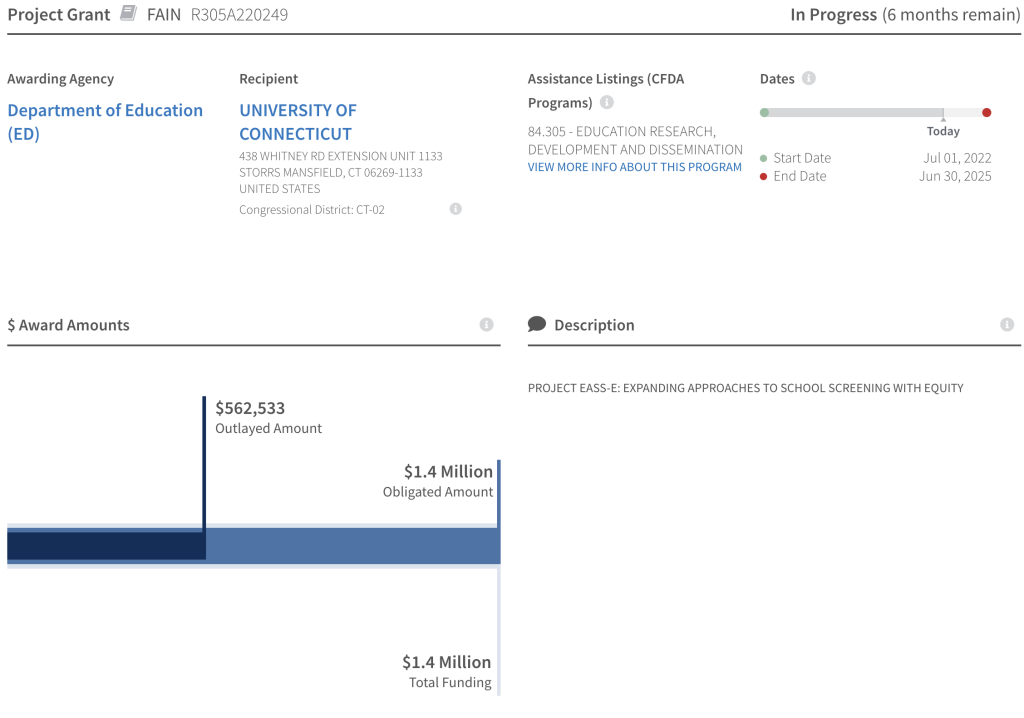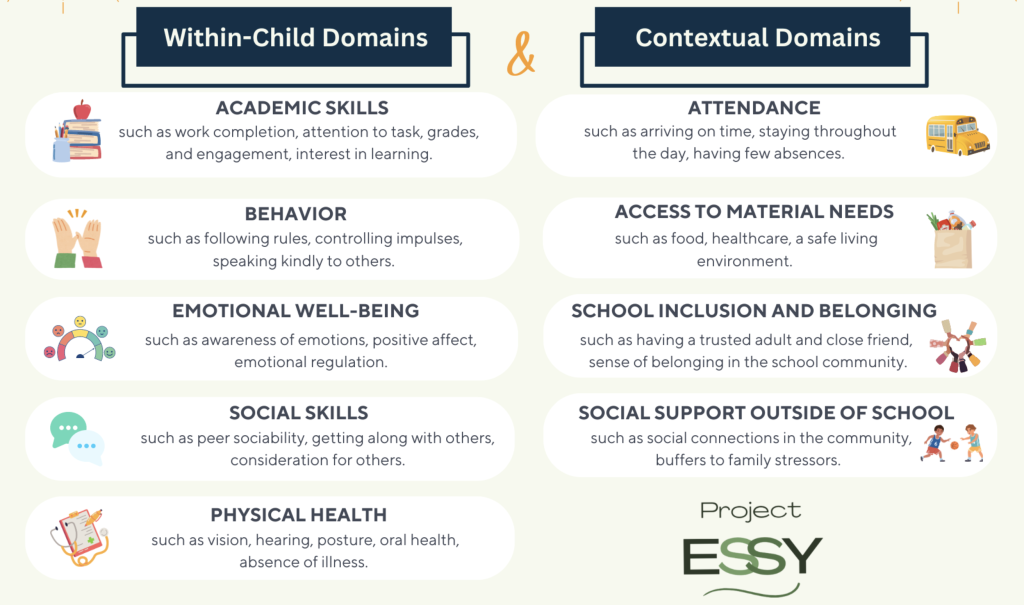
Please Follow us on Gab, Minds, Telegram, Rumble, Gettr, Truth Social, Twitter
The University of Connecticut was found listed in an investigation by Parents Defending Education that exposed $1 billion in Department of Education grant funding to promote far-left ideologies in education.
The UConn grant has been in progress since July 1, 2022, with an end date of June 30, 2025. The total funding award for "Project EASS-E" -- "Expanding Approaches to School Screening With Equity" was $1,396,455. The project is housed within the NEAG School of Education.
So far, $562,533 has been outlayed, with six months to go on the grant.

In addition to the Department of Education grant, UConn also received a grant from the Institute of Education Sciences, bringing the total funding for EASS-E (aka "Project ESSY") to $1,924,244.
The research is being done in conjunction with Northeastern University.
Here is the project description from UConn:
The purpose of the project is for researchers to develop and establish initial psychometric evidence for a school-based screening instrument designed to assess both child- and environmentally-focused indicators: the Comprehensive and Contextual Child Screener in Schools (C3SS).
Screening assessments serve as a primary data driver in multi-tiered systems of support as data are provided to efficiently and effectively deliver information needed to direct supports. Psychometrically-sound screening assessments for social, emotional, and behavioral (SEB) domains have proliferated over the past two decades; however, the promise of these screeners has yet to be fully realized for multiple reasons.
First, uptake of SEB screeners has not been widespread, with resource demands and capacity for data use as primary barriers. Second, although the rise in available SEB screening tools is promising, concerns about the narrow focus and potential rater bias of these screeners have been raised. That is, the vast majority of SEB screening tools are comprised of items that reinforce a child deficit view. A within-child perspective that does not also attend to contextual factors is problematic for many reasons, particularly with regard to its potential contribution to reinforcing bias and ultimately disproportionality.
Equitable SEB screening must incorporate data collection that can efficiently screen across multiple independent risk factors and data use that incorporates contextually relevant information and addresses personal biases. In sum, SEB screening assessments offer critical information within integrated multi-tiered systems of support, but current iterations are inadequate at providing contextualized information about the whole child.
Screening assessments are used to determine what supports students need.
The ESSY team believes decisions about supports need to be done on a universal basis in "equitable" ways to ensure all students receive supports according to their need.
The goal of Project ESSY, then, is to develop and evaluate a screener that incorporates "information about the whole child" and that addresses the implicit "biases" of school staff.
The ESSY Whole Child Screener is based on what the researchers call "tranformativist methodologies" including the concept of "universal screening" as a "means to promote equity by ensuring all students’ needs are systematically assessed, and students receive appropriate supports that match the intensity of those needs."
The ESSY team learned that some people are opposed to the screener due to the personal and critical nature of some of the questions.
Plus, some educators are concerned about the additional workload universal screening might require.
Of course, the team specifically pointed out that people who are opposed to social emotional learning because SEL promotes the tenets of critical race theory, may not feel "favorably" about universal screening. Go figure.

